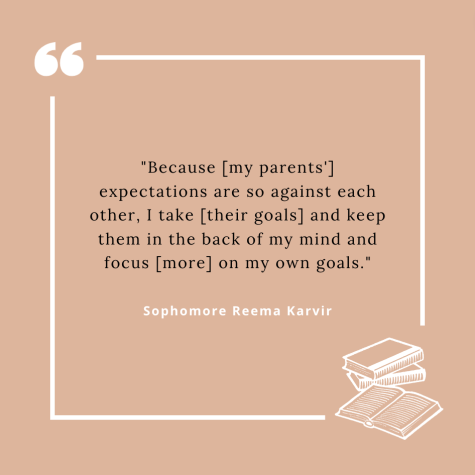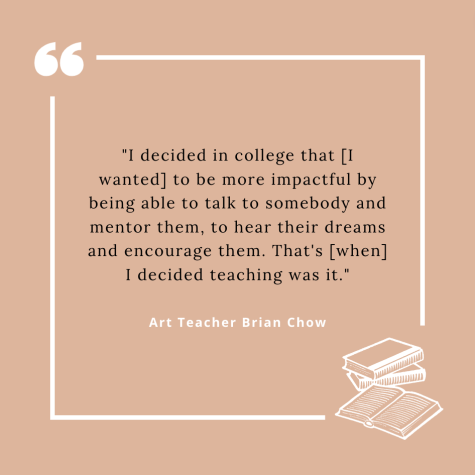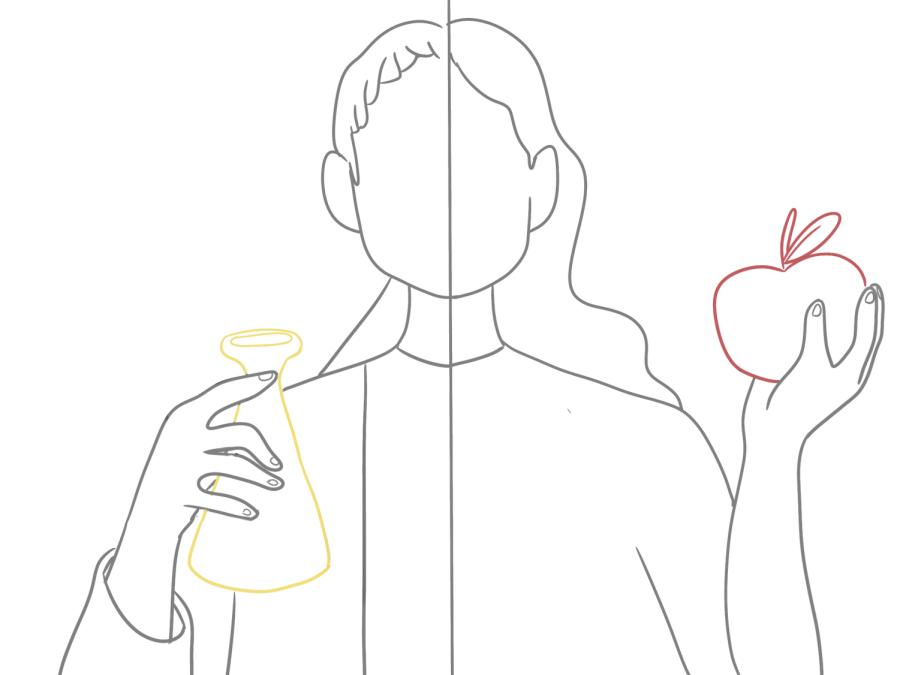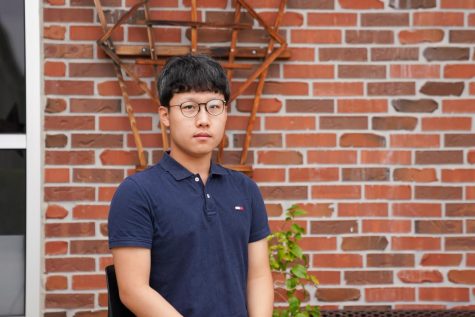Aspirational Distances
Exploring the differences in career aspirations between generations.
January 15, 2023
When art teacher Brian Chow was young, he had many dream jobs, one of them being playing music. While he was interested in the idea of making his own songs, he explains that one of his two older brothers gave him a “reality check” by saying that it is difficult for musicians to make a living. Although this was the first instance in which he experienced such feedback from others, in high school, Chow also experienced several minor conflicts with his parents when exploring a variety of different career paths.
“I remember there was a retail merchandising program where you get some work experience [but to get there], I had to drive all the way up to Westgate Mall, but I didn’t live near [there],” Chow said. “That meant I needed to get my driver’s license, but my parents said I [couldn’t] get one until [I was] 17. I felt a little discouraged by that because my parents told me to go find something I could do, and [when] I did, they threw up this roadblock.”
Sophomore Anushka Kumaran believes that academic and career interests also affect the relationships that students at MVHS have with their parents. She shares that her current academic interests lie in biology, and because her parents also enjoyed STEM subjects during their time at school, they are supportive of her interest.
Similar to Kumaran, sophomore Reema Karvir shares that she is interested in STEM subjects such as data science and chemistry, and plans on majoring in one of those subjects, as well as receiving a minor in business. She explains that because her dad’s career is business related and her mom works in the field of technology, her upbringing had a large influence on her academic choices.
Kumaran agrees that her parents also had a prominent influence on her current interests, yet mentions that she is still working to develop her own interests as well.
“My parents [were] the ones who put me in certain extracurricular activities growing up, [so] those are the things that I am interested in now,” Kumaran said. “But I’ve also tried to explore things myself in high school: I joined clubs [like] Model United Nations, which is something that I [didn’t do] when I was young, so that’s something that I’ve learned to enjoy on my own.”

Karvir shares an experience similar to Chow’s, saying that she feels a certain degree of uncertainty towards her career goals due to her parents having differing academic expectations for her.
“My dad wants me to go do an undergraduate at a UC and go do a master at an Ivy [league] school,” Karvir said. “I don’t know if that’s going to happen because [those are] high expectations. [On the other hand], my mom wants me to go study abroad. So they often quarrel about where I’m going to go to college, and it’s very confusing [for me]. But because their expectations are so against each other, I take [their goals] and keep them in the back of my mind and focus [more] on my own goals.”
For Kumaran, while her prominent interests lie in science, she also enjoys activities related to public speaking, such as talking and debating with others about ideas that interest her. However, contrary to her parents’ support of her STEM interests, Kumaran mentions that such support might not apply to public speaking.
“If I choose to [major in] something like law, that wouldn’t align with my parents’ [wishes] because [those subjects] are not something that my parents are familiar with,” Kumaran said. “My parents are supportive of what I do, but they will definitely [think] that [I] should stick to STEM subjects if I bring up the idea of [majoring in public speaking].”
On the other hand, Chow shares that because his parents were more of a “you go figure it out, I’m not going to stand in your way” type of parents, he mostly had the freedom to pursue the careers he wanted. For Chow, his interest stemmed in finding a job that had a positive impact on others. While he initially worked for nonprofit organizations, a turning point for his career came during college.
“I decided in college that [I wanted] to be more impactful by being able to talk to somebody and mentor them, to hear their dreams and encourage them,” Chow said. “So that’s [when] I decided teaching was it. My parents [were] familiar with teaching as a career, so they [asked me if] I was sure [I] wanted to [teach] because it doesn’t make a lot of money, and I said I [was] sure.”

Now, Chow states that he not only finds joy while teaching at MVHS, but also is glad that his family — especially his kids — are supportive of his job as a teacher. He says that his kids “have indicated that [they] want to be a teacher one day,” and he believes that “they see [teachers] as a highly valued, high status, important role.”
Even though students might experience conflicts with their parents due to academic or career plans, Kumaran believes that students should ultimately prioritize their own goals.
“At the end of the day, you will be the college student [studying the major],” Kumaran said. “So [I think] that [if you] choose what you want to do, and if you do well, you will eventually get good outcomes.”


















